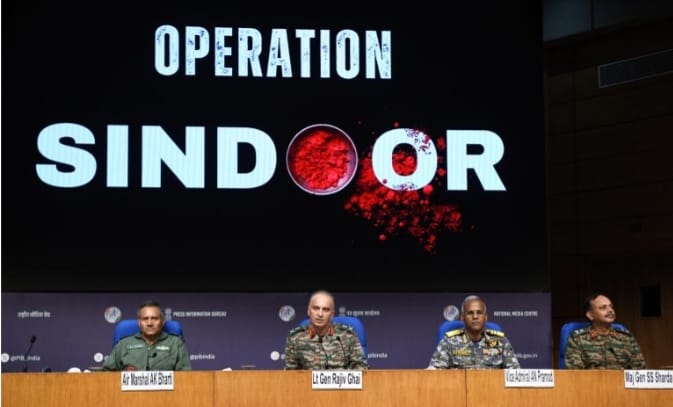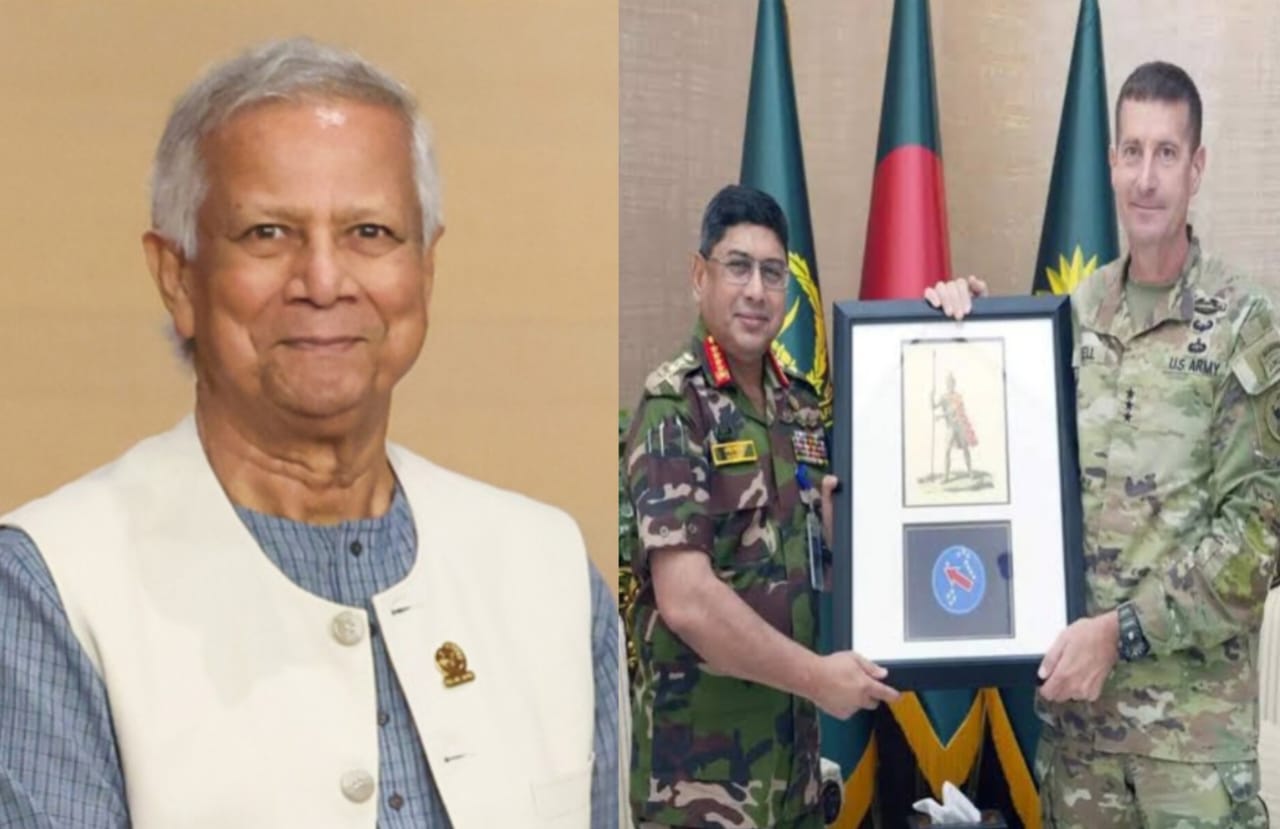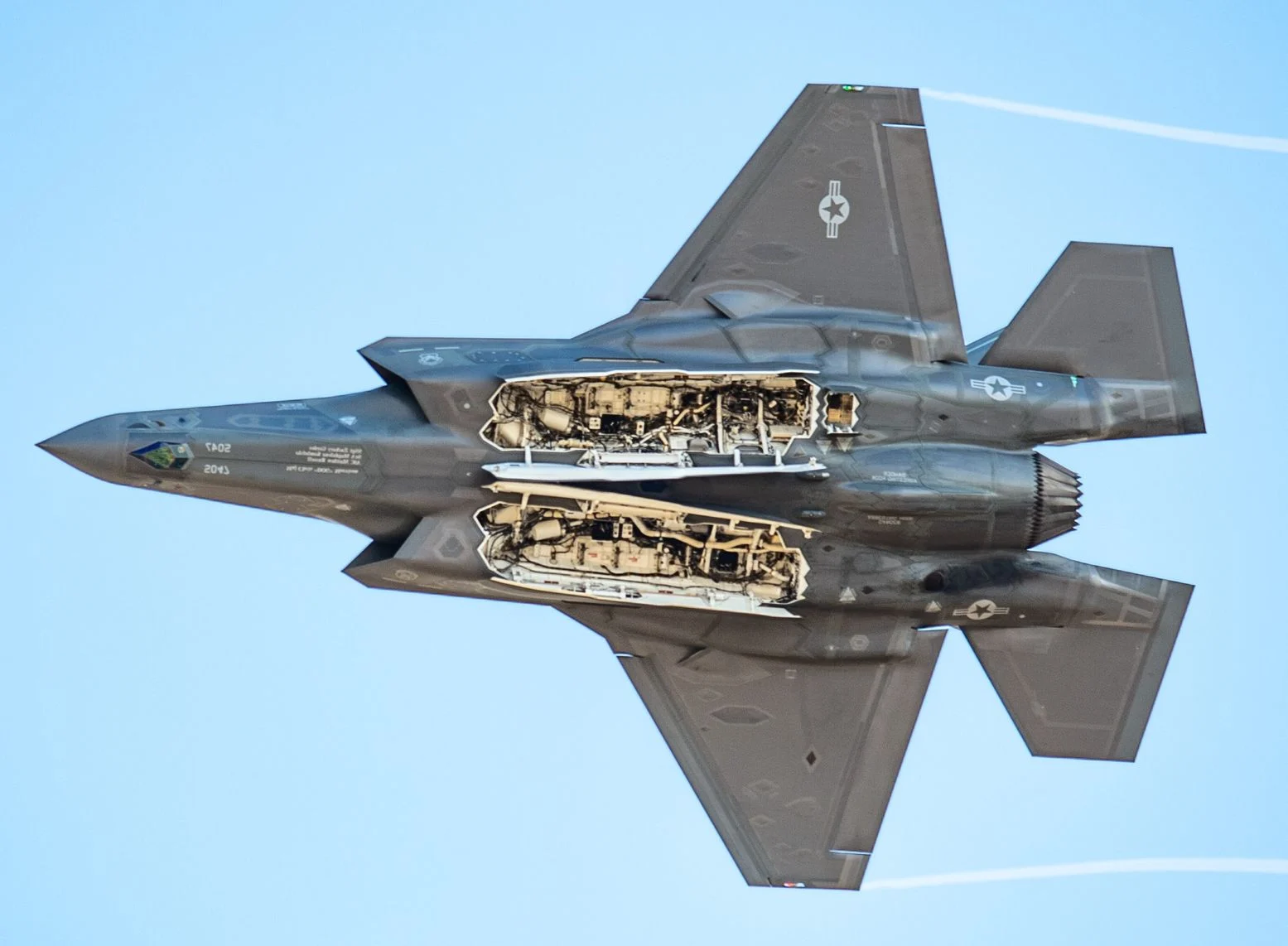
-Riya Karan
Grief brings us together; it binds humans beyond race, region, and religion. For decades, the state of India has been the victim of terrorism coming from her neighbors themselves. She stood tall and strong only to be bathed in the blood of her own children for years in the hope that the world might realise the brutality of Pakistan and voice their protest to counter the unjust.
But who hears the pleas of the innocent? To be abandoned by the rest of the world was not just a betrayal but a reality India had to face alone. Learning from the epics of Mahabharata that you fight evil alone just like the Pandavas. No one will come for your rescue and you have to bring your claws out to protect yourself and your people. India picked a few things from the cultural past and said no to terror this time.
After Pahalgam something changed in the air of our land, suddenly we were out of the victim mentality and sought justice and knew how to deliver it, after all, the children of Kaali knew how to spill blood to protect their own.
In the Pahalgam terrorist attack, India lost its twenty-six citizens on 22nd April 2025.
A few weeks later, India responded to the attack, entering the heart of terror funders and organizers. Just like Devi’s sword, India had its missiles and drones ready. After Uri and Pulwama one thing was clear: killing the terrorists or destroying their launch pads was not enough. Something bigger and better needed to be done. Attacking the headquarters of Lashkar-e-Taiba and Jaish-e-Mohammed was on the top priority list. On the night of 6th–7th May 2025, India launched a series of targeted attacks on nine different locations in Pakistan and Pakistan Occupied Kashmir. Muridke was linked to Hafiz Saeed and was the headquarters of LeT, whereas Bahawalpur related to Masood Azhar, headquartering the JeM base. Both of them, along with the other seven targets, were neutralized under the code name Operation Sindoor.
India did not rest here; it started preparing for diplomatic checkmates. The interesting thing about any form of communication is that it never ends, be it in general life or in the military world. It keeps on happening even when you put an end to it. The post-Op Sindoor period was that communication one needed to make sure that the deaf listens.
Immediately after Operation Sindoor, India prepared a delegation of seven teams to travel across thirty-two countries and carry the message about the terror activities promoted and organized by Pakistan against India and the rest of the world. This delegation was a true representation of Bharat, consisting of politicians, representatives, and former diplomats from all over the country, representing the diversity the West can only dream of. India from all walks of life was united and stood together against the unjust cold-blooded murders that shook our women and children and claimed the lives of the innocent.
The delegation carried the message that Operation Sindoor wore on itself while answering the whys and whats most of the countries had. Questions like what was the need for that scale of military response and why such a response. The delegation briefed the world about the open terror funding Pakistan has been doing to make sure that India bleeds in a thousand cuts, and what infrastructure was targeted in the operation followed by the measures India took to counter Pakistan like sanctioning economic ties, restricting trade, visas, and water. The new doctrine to counter terrorism was written in India through Operation Sindoor. The doctrine speaks of three key elements: that India will take action against terrorism on its own terms, there will be no tolerance for nuclear blackmailing, and terror sponsors and terrorists will be seen the same.
The delegation returned with satisfied hearts and support from the world and briefed Minister of External Affairs S. Jaishankar over the visits to submit their reports at the earliest which shall add more insights to what needs to be done and what areas can be improved.
The Pahalgam terror attack has left Pakistan naked for sure. It has lost not just credibility of so-called caring for Kashmir and Kashmiris but also shown their hate openly for Hindus. For years they kept on convincing their population and the world about the so-called barbarity of the Indian state against their minorities, but what I see is the opposite of it. The population of the Indian minority has kept on growing and the case is totally in contrast with Pakistan where the Hindu population is just 2% as per the 2017 Pakistan Population and Housing Census. They too home Hindus, so Munir hates his own citizens now? The robbing of basic rights from the Balochis and blatantly murdering their fathers and sons is not hidden from the world either. We know how in masses the bodies of the Balochi men were discovered, among which Mahrang Baloch’s father and brother lay in silence and in revolt against the barbaric Pakistani military. Converting the minor girls on the edge of a sword is not new to the terrorist land, and raping young girls — they take pride in that.
As a country that is run by military men and has no actual representation of the people, the occurrence of violence doesn’t surprise the world but surely shocks India and other Global Southern countries about the ease that the world practices on such crimes. One of the delegation members quoted that one of the country’s governments is also strained from Pakistan as any and every terror activity in their land is somehow linked with our distinguished neighbor, whether the terrorists had taken training or funds have been provided. Pakistan stands as a crime against humanity and to counter it we must all come together.
For this, India has been thinking on the idea of T-20 — a platform to counter the terror state — where India leads the Global South to fight terrorism. This is a need of the hour since the UN speaks selectively and the world acts deaf towards the suffering of the Global South. This platform sounds like an urgency and necessity. Features of this platform as suggested for will be real-time sharing of intelligence, counter-radicalisation programmes, joint statements, and more.
With time, it will unfold what it stores for the future world, but one thing is sure — anyone who has experience and competence to counter terrorism, that is India. We lived, fought, bled, and survived the horrors and prayers and now offer a platform so that no other country has to go through the same.



Indeed the pahalgam incident and subsequent befitting response by state in terms of Op. Sindoor was a must in terms of maintaining conventional detterance, The article covers the visit of delegation and Idea of T-20 extensively. It is need of hour for World to come together and call a spade a spade and dismantle this ongoing terror infrastructure in terms of economic, political and strategic sanctions with robust action taking hit on the deep state that functions in Pakistan.